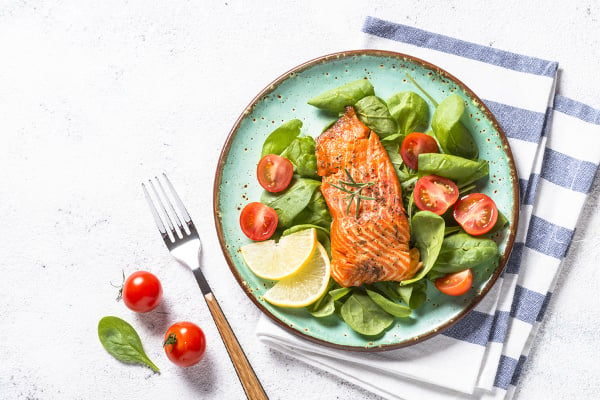High blood pressure, also known as hypertension, is a common condition that affects millions of people worldwide. If left untreated, it can lead to serious health complications such as heart disease, stroke, and kidney problems. While medication is often prescribed to manage hypertension, dietary changes can also play a crucial role in lowering blood pressure levels.
1. Follow the DASH Diet

The Dietary Approaches to Stop Hypertension (DASH) diet is a well-known eating plan that is specifically designed to lower blood pressure. It emphasizes consuming foods that are rich in nutrients, such as fruits, vegetables, whole grains, lean proteins, and low-fat dairy products.
By following the DASH diet, you can reduce your sodium intake, which is a major contributor to high blood pressure. It also promotes the consumption of potassium, magnesium, and calcium, which have been linked to lower blood pressure levels.
2. Increase Potassium Intake
Potassium is a mineral that helps to balance sodium levels in the body. It can counteract the negative effects of sodium on blood pressure. Foods that are high in potassium include bananas, oranges, spinach, sweet potatoes, and yogurt. Adding these foods to your diet can help to lower blood pressure naturally.
3. Limit Sodium Consumption
Excessive sodium intake is a leading cause of high blood pressure. It is important to limit the amount of salt added to your meals and avoid processed foods that are high in sodium. Instead, opt for fresh ingredients and season your food with herbs and spices to enhance the flavor.
4. Incorporate Magnesium-Rich Foods
Magnesium is a mineral that plays a vital role in regulating blood pressure. Foods that are rich in magnesium include leafy green vegetables, nuts, seeds, whole grains, and legumes. Adding these foods to your diet can help to lower blood pressure and improve overall cardiovascular health.
5. Reduce Alcohol Consumption

Excessive alcohol consumption can raise blood pressure levels and damage the liver. If you drink alcohol, it is important to do so in moderation. Limit your intake to no more than one drink per day for women and two drinks per day for men.
6. Cut Back on Caffeine
Caffeine can temporarily elevate blood pressure levels. While moderate caffeine consumption is generally safe for most people, excessive intake can have a negative impact on blood pressure. It is best to limit your caffeine intake, especially if you are sensitive to its effects.
7. Maintain a Healthy Weight
Being overweight or obese can increase the risk of developing high blood pressure. By maintaining a healthy weight through a balanced diet and regular exercise, you can lower your blood pressure levels and reduce the strain on your heart.
Making dietary changes can be an effective way to lower blood pressure levels naturally. By following the DASH diet, increasing potassium intake, limiting sodium consumption, incorporating magnesium-rich foods, reducing alcohol and caffeine consumption, and maintaining a healthy weight, you can take control of your blood pressure and improve your overall health.


